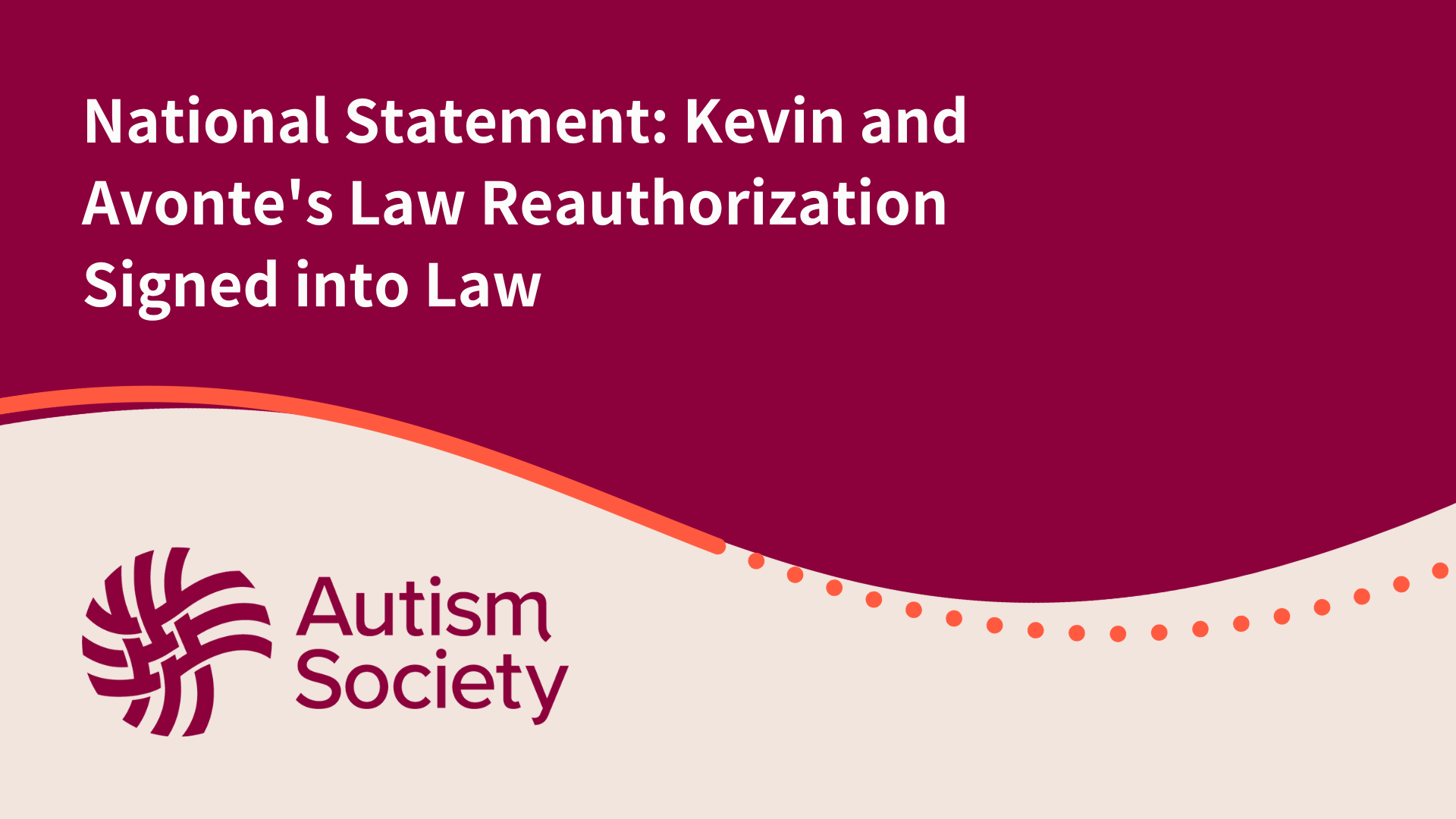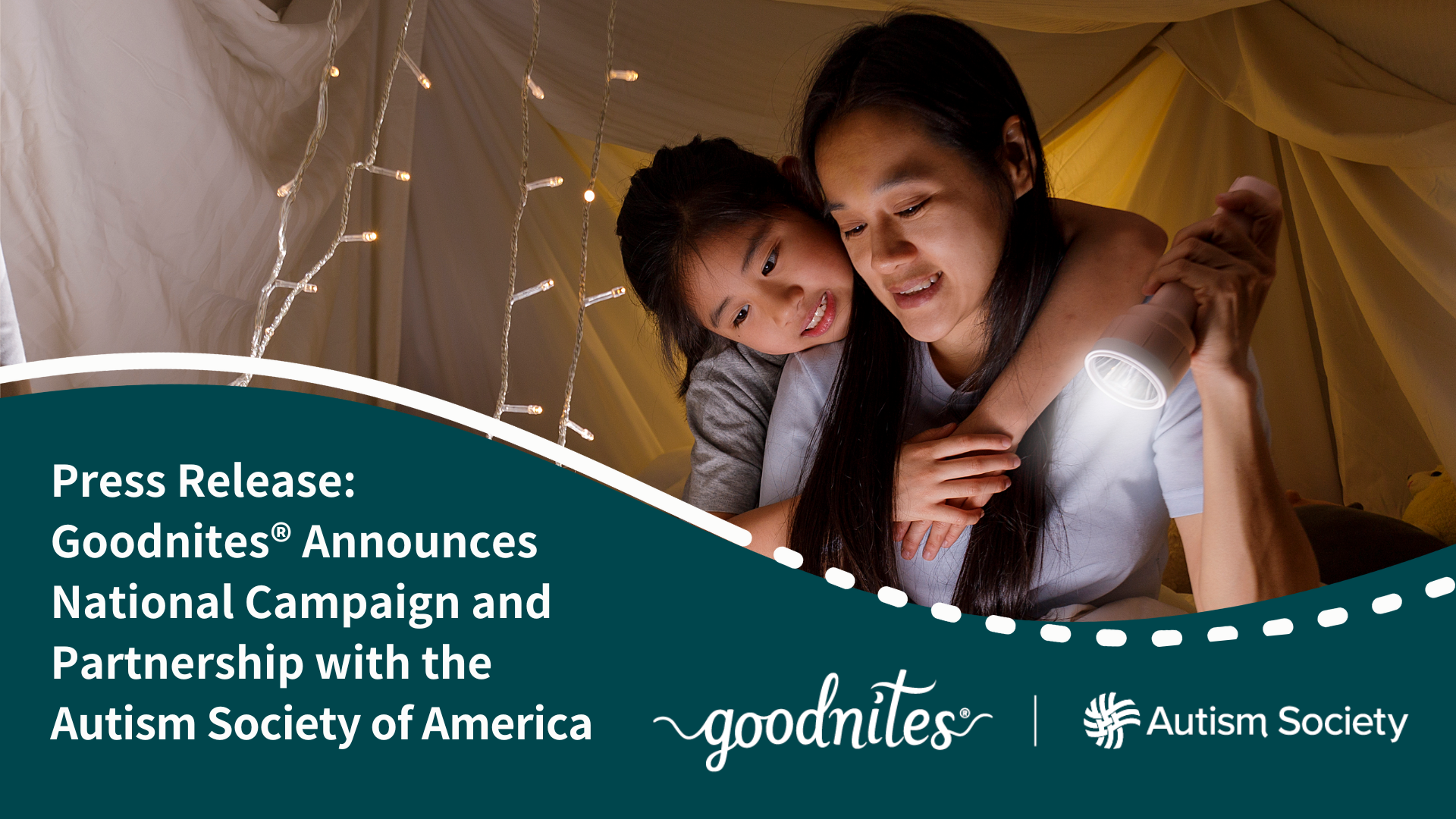
In this issue of Capitol Connection, find updates on legislation that still has a chance for passage or movement before the 117th Congress ends, comments in response to new rules from the Administration on the Affordable Care Act, and important information about a Social Security cost-of-living adjustment. Resources for National Disability Employment Awareness Month (NDEAM) and state advocacy are also included. Please use the Autism Society’s Election Center for details on how to register to vote, information on the candidates, and important news for the upcoming national election on November 8th.
Legislative Updates
RISE ACT Update
As mentioned in our October 6th edition, the RISE Act, or the Respond, Innovate, Succeed, and Empower Act passed the House of Representatives within a mental health package. The Autism Society signed on to a letter from a variety of other disability advocacy groups thanking the House for passing the bill and urging the Senate to include this bill in its end-of-year packages. This bill amends the Higher Education Act (HEA) to list the documentation a higher education institution has to accept when considering whether an enrolled student has a disability, such as an IEP and 504. The National Center for Learning Disabilities provided a sample letter to write to members of Congress urging its passage.
Police Interactions Data
Senator Bob Casey (D-PA) plans to introduce the Data on Interactions and Accountability for Law Enforcement with Individuals with Disabilities (DIALED) Act when Congress returns after the November elections. The DIALED Act would address data collection needs and promote accountability related to interactions between people with disabilities and law enforcement. The DIALED Act will accomplish this by 1) creating a national advisory council on disability status and law enforcement interaction data collection tasked with developing collection and reporting methodologies and providing recommendations to the Attorney General on best practices; 2) Amending the Death in Custody Reporting Act and the FBI Use of Force Data Collection Program to ensure that disability status is collected and reported publicly. The Autism Society has been meeting with targeted members of Congress to educate them about how this bill impacts people with Autism, their families, and how it compliments two other LEAD initiative bills. Autism Society affiliates and allies can contact their members of Congress on this issue using the Action Center.
Electronic Stimulation Devices
Congress passed an FDA bill without the amendment to end the use of electronic devices used for behavior management at the Judge Rottenberg Center (see September 8th edition of Capitol Connection). While we are terribly disappointed, the Autism Society and other advocates have not given up. When Congress returns from recess in November, advocates will urge Congress to pass the policy using another vehicle, such as the final appropriations bills. In the meantime, Autism Society affiliates are encouraged to continue to educate policymakers using our action alert about this harmful practice. The Autism Society has been advocating for the end of ESDs for many years. See more background information about the FDA rule to ban the use of the device.
Administration Updates
ACA Glitch Fixed
On October 11th, the Internal Revenue Service (IRS) and the Department of the Treasury issued a final rule to revise a 2013 interpretation of premium tax credit eligibility for families, the so-called “family glitch.” The family glitch was a situation when an individual had an offer of employer-based coverage that would not cover the rest of his or her family. If that occurred, the entire family was precluded from receiving premium tax credits through the Affordable Care Act marketplaces. The rule will change how affordability is determined for these families making many more eligible for premium tax credits. The rule was published just in time for the start of Open Enrollment Year 10 which begins in less than a month. The final rule was accompanied by statements from President Biden and Secretary Becerra of the Department of Health and Human Services (HHS).
Comment on Rule Preventing Discrimination in Health
The Autism Society signed on to comments prepared by the Consortium for Constituents with Disabilities (CCD) regarding the proposed rule under Section 1557 of the Patient Protection and Affordable Care Act. CCD commented on both prior 1557 proposed rules because of the importance of nondiscrimination protections for people with disabilities. People with disabilities face substantial disparities in access to health care and frequently face discrimination in access. The comments also address problems that surfaced during the height of the Covid-19 pandemic in which the civil rights of patients with disabilities were violated. The letter supports the new rule and urges the Centers for Medicare and Medicaid (CMS) to finalize it quickly.
Mental Health
The Mental Health Parity and Addiction Equity Act of 2008 (MHPAEA) requires health insurance plans to cover mental health treatment in the same way that treatment is provided for physical health. The Georgetown University Center on Health Insurance Reforms (CHIR) just released a new issue brief that examines how states have been enforcing the MHPAEA especially given the growing need for mental health treatment during the pandemic.
ACL Announces National Transportation Accessibility Center
The Administration for Community Living (ACL) announced a grant award to develop a National Transportation Accessibility Center, or NTAC. The Community Transportation Association of America, Institute for Community Inclusion (UMass Boston), USAging, and DJB Consulting will develop the Center. The Center is charged to develop and promote accessible transportation for people with disabilities, older adults, family caregivers, and their network. ACL is taking many actions to prioritize inclusive transportation, learn more here.
Social Security
The Social Security Administration (SSA) announced that beneficiaries will receive a cost-of-living adjustment (COLA) of 8.7 percent. This adjustment is the highest since 1981 and will result in an average of 146 extra dollars per month. This increase is due to the high inflation being experienced throughout America. To learn more, visit the SSA webpage.
National Disability Employment Awareness Month
Community Connections Employment Event
There are many events and pronouncements in October to celebrate and promote employment for people with disabilities. The Autism Society of America is hosting a National Disability Employment Awareness Month Facebook live event on Thursday, October 20th at 3 p.m. EST as part of its Community Connection Series. Jaimie Timmons (ICI), Allie Tasche, Kim Musheno, along with self-advocates Frank Hellmer and Oscar Segal will discuss the collaboration with the Institution for Community Inclusion (UMASS) and the Autism Society to share resources and evidence-based practices. During this event, a new toolkit, Creating a Path: How to Support Families and Young Adults with Autism to Prepare for Competitive Integrated Employment, will be announced. The purpose of this new toolkit is to share considerations for professionals and other supporters to help prepare youth for competitive integrated employment.
DOL
The U.S. Department of Labor’s Office of Federal Contract Compliance Programs joins the Office of Disability Employment Policy in celebrating the 77th anniversary of National Disability Employment Awareness Month. NDEAM celebrates the contributions of America’s workers with disabilities, past and present, and showcases supportive, inclusive employment policies and practices. This year’s theme is “Disability: Part of the Equity Equation.”
Presidential Proclamation
President Biden issued a Proclamation for NDEAM, in which he states that his Administration’s Labor Department is “protecting the rights of workers with disabilities in the private sector, cracking down on employers who discriminate, and ending the unfair use of sub-minimum wages.” As the President declared, “This month, let us acknowledge workers with disabilities who make our communities, our economy, and our Nation stronger. Let us continue the legacy of generations of disability rights activists who have fought for equal employment opportunities, integrated workplaces, and equal pay for equal work. Let us deliver the promise of America to all Americans.”
State Advocacy
2023 State Legislative Calendar
All 2023 State Legislative Calendars were just released. Fiscal Note combined these calendars into one infographic. Be sure to reference these Calendars as you prepare your legislative priorities for the next session.
American Rescue Plan Funding for CIE Update
Autism Society attended a webinar hosted by the Disability Employment Technical Assistance Center and the Administration for Community Living (ACL) on how States are using American Rescue Plan (ARP) funding to advance competitive and integrated employment. This webinar comes after the ACL published a factsheet explaining how states can use ARP funding to promote employment for individuals with disabilities. Leaders from multiple states came to present how their state is developing programs to use the funding to increase employment. For example, Tennessee is starting a program called Medicaid Alternative Pathways to Independence, or MAPs, to assist transition-aged youth with intellectual and developmental disabilities to find employment and increase independence in their communities. In Wisconsin, ARP funds were used to increase rates for all HCBS providers, institute a career ladder for direct support providers (DSP), and provide grants to support providers, individuals, families, and DSPs. The Autism Society encourages affiliates to reach out to their States’ Vocational Rehabilitation Agencies to see how their state is using ARP funding to support people with Autism.
Voting Resources
The November 8th mid-term election is only weeks away! A total of 469 seats in the U.S. Congress (34 Senate seats and all 435 House seats) are up for election on November 8th. Here are two resources to ensure that people with Autism and other disabilities are included:
- The Autism Society’s Election Center allows visitors to find out how to register, see the list of candidates, and other voting resources in each state, including disability services.
- AAPD’s REV UP Voting Campaign recently launched its 2022 state-by-state voting guides made by and for disabled voters.
Share:




